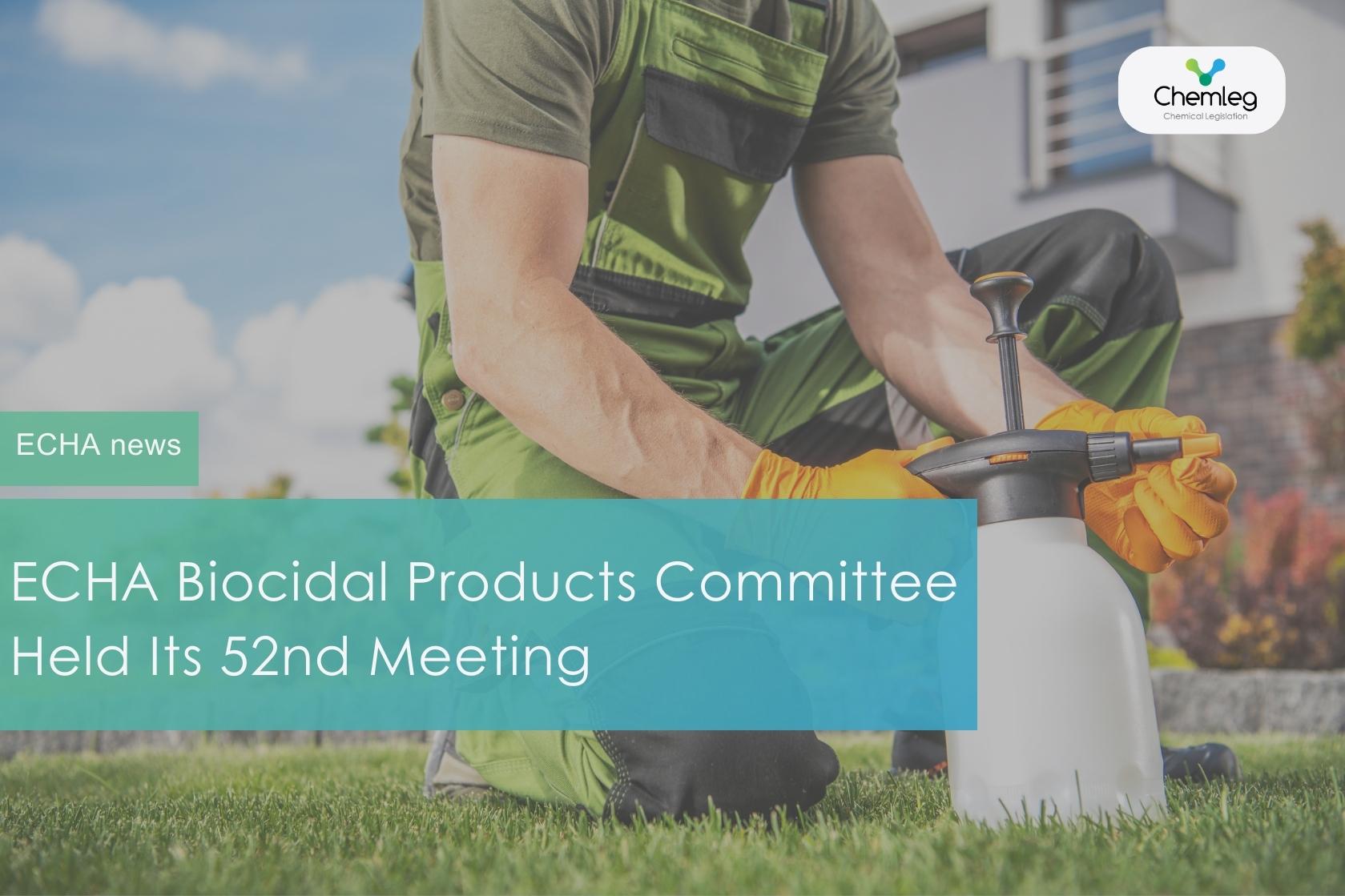
ECHA Held Its 52nd BPC Meeting
Notes from the Biocidal Products Committee Meeting
The Biocidal Products Committee (BPC) of ECHA held its 52nd meeting online on September 17-18, 2024, lasting approximately seven hours.
Key topics discussed included updates on active substance approvals, revisions in authorization processes, and updates on the directives under Article 75(1)(g), with some specific substances being discussed in detail.
Key Points of the Meeting
The major takeaways from the meeting are outlined below:
Active Substances:
Denmark suggested evaluation of post-approval data for icaridin under Product Type 19 and the adjustment of the environmental endpoint for the icaridin-acid metabolite.
The Biocidal Products Committee reached a consensus on the post-approval analytical methods and correcting the QSAR estimation errors related to the environmental endpoints of the icaridin-acid metabolite.
Union Authorizations:
The following product families received approval on certain topics:
- Product Type 18: Biocidal product family containing Transfluthrin
This product family includes liquid products designed for non-professional use to control moths, mosquitoes, and flies indoors. The products in question are vapour-release products and liquids used in electric vaporizers.
The opinion on authorization was accepted unanimously, and the competent authority carrying out the assessment is the Netherlands.
- Product Type 3: Biocidal product family containing L-(+)-lactic acid
Professionals in veterinary hygiene use these products. These ready-to-use disinfectants are effective against bacteria and yeast when applied post-milking.
The opinion on authorization was accepted unanimously, and the competent authority carrying out the assessment is the Netherlands.
- Product Type 3: Biocidal product family containing Chlorocresol
Both professional and non-professional users use these products for veterinary hygiene disinfection, targeting bacteria, yeast, viruses, fungi, and endoparasites.
The opinion on authorization was accepted unanimously, and the competent authority carrying out the assessment is Germany.
Article 75(1)(g):
- BIT (Product Types 6 and 13):
BPC drafted two opinions concerning the evaluation of tier 2 efficacy data for BIT, a protective active substance. As a result of the review, it was concluded that the current data can be accepted as tier 2; therefore, the data requirements are met and its efficacy is proven.
The opinion on authorization was accepted unanimously, and the competent authority carrying out the assessment is Spain.
- Formic acid (Product Type 6):
The applicant provided new tier 2 efficacy data for this protective active substance. As a result of the review, it was concluded that the current data can be accepted as tier 2; therefore, the data requirements are met and its efficacy is proven.
The opinion on authorization was accepted unanimously, and the competent authority carrying out the assessment is Belgium.
Procedures for Union Authorization Renewals:
Union authorizations are granted for a maximum of 10 years and can be renewed. According to the EU Biocidal Products Regulation, renewal applications must be submitted 550 days before the authorization expires. The first Union authorization will expire in June 2026, meaning the first renewal applications are expected by the end of 2024.
To support the renewal process, the BPC discussed several key documents, including:
- A general procedural guide for renewals.
- A procedure for reviewing the translations of product summary characteristics.
- A document to determine whether a ‘full’ or ‘limited’ assessment is required for the renewal.
These documents will support all actors in the renewal process and contribute to improving the quality of applications and their compliance with the EU Biocidal Products Regulation.
For more detailed information, visit the Biocidal Products Committee’s website.
This article was originated from ECHA.
